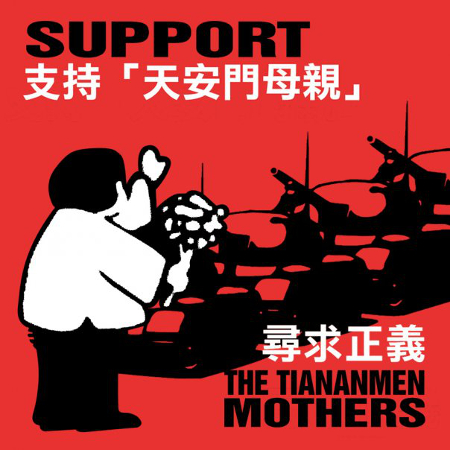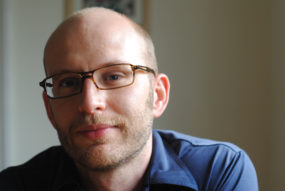The Dinner Table Debate and the Uses of Hospitality
Dinner at Dan Savage’s home one evening in 2012 featured unlikely company. At the table were Savage, a gay rights advocate and sex advice columnist; his husband, Terry Miller; their teenage son, D.J.; Mark Oppenheimer, a religion correspondent for The New York Times; and Brian Brown, president of the National Organization for Marriage. Savage and Brown remained afterward to debate same-sex marriage, with Oppenheimer as moderator.1 The idea was that sitting together at a dinner table and sharing food and wine in Savage’s home would fundamentally change the nature of the debate and perhaps also Brown’s mind. As Oppenheimer commented, “It was my hope, of course, that Mr. Brown might witness a sane, functional, happy family in a bourgeois home, and consider it as another piece of evidence, something more for reason to operate on.” That did not quite happen.
Oppenheimer’s hope is shared by many searching for ways to better engage and understand one another across differences. Although the issue at the heart of the debate, same-sex marriage, has since been legally decided, the rhetorical dynamics in the debate remain very much in play. This essay examines the dinner table debate against expectations for how hospitality might change minds and the nature of the debate itself. I draw upon theories of hospitality, particularly by Jacques Derrida, to understand the complicated positions of guest and host. In analyzing the video of the debate and Oppenheimer’s subsequent article, I consider how hospitality constrains the host and empowers the guest even as hosting remains a powerful gesture. Hospitality is a useful rhetorical concept for the situated dynamics it highlights, its attention to roles and obligations, and the critical questions it raises concerning who gets to host whom, under what conditions, on whose behalf, and to what ends.
Setting the Table for a More Hospitable Debate
The dinner table debate followed a speech Savage delivered at a high school journalism conference months earlier. In that speech Savage criticized religion, saying, “We can learn to ignore the bullshit in the Bible about gay people” (bandroadie95). Some students walked out, a reaction Savage called “pansy-assed,” for which he later apologized. The episode garnered much attention. Brown responded by issuing Savage a challenge on the NOM web page: “You want to savage the Bible? Christian morality? Traditional marriage? Pope Benedict? I’m here, you name the time and the place and let’s see what a big man you are in a debate with someone who can talk back.” There is a sense of bravado here and recognition that time and place are significant factors in a debate. Savage responded on his podcast by inviting Brown to his home. “Bring the wife, my husband will be there,” Savage said, although Brown’s wife was unable to attend (qtd. in Oppenheimer). Savage added, “You have to acknowledge my humanity by accepting my hospitality, and I have to acknowledge yours by extending my hospitality to you.” Hospitality then became the guiding concept of the debate, requiring a mutual acknowledgment of each other’s humanity.
Hospitality has a rich philosophical tradition and has received renewed attention alongside cosmopolitanism.2 Hospitality is sometimes mentioned as an ethical consideration in rhetoric and philosophy, and hospitality is a key term in Richard and Janis Haswell’s inquiry into relationships in the composition classroom.3 But the ways in which hospitality works in a situated exchange, how hospitality itself may be leveraged rhetorically by guest and host, have not been fully developed.4 Hospitality is a useful lens of rhetorical analysis for how it foregrounds the work of setting in determining power dynamics and of obligations, based upon cultural traditions of hospitality, in enabling and restraining discourse. As the role of hospitality is overlooked, so are these related effects.
The traditions of hospitality, as identified by Haswell, Haswell, and Glenn Blalock, include Homeric, a warrior hospitality focused on prestige and sharing spoils; Judeo-Christian, a spiritual practice of hospitality emphasizing radical equality; and nomadic, in which information is exchanged between host and guest. Nomadic hospitality allows for a later reversal of roles, as a guest may become a future host, and is the most restrictive for the host since “a guest is treated with extreme deference” (713). This deference is reflected in Savage’s reluctance to offend or attack Brown, even as Brown argues against the legality and morality of Savage’s family. Haswell, Haswell, and Blalock also describe transformative hospitality, characterized by a risk-taking that permits “having convictions unfixed” (720). They connect this to John Bennett’s notion of intellectual hospitality: “the extension of self in order to welcome the other by sharing and receiving intellectual resources and insights” (23). These traditions of hospitality inform the roles, obligations, and expectations of the dinner table debate.
The most vital theorist of hospitality for rhetorical purposes is Derrida. He recognizes the paradoxical power of the host, who is able to set the terms of the exchange but also must submit to the guest so that “the host thus becomes a retained hostage” (107). Derrida grounds hospitality in logic, language, and ethos. Citing Levinas, he writes, “language is hospitality” in the ways that language is values, norms, reasons, and relationships (135). Derrida’s reading of hospitality foregrounds the relationship of Savage and Brown as host and guest and how they use those positions to rhetorical effect. Savage does so by telling his family’s story throughout the debate. This is their home, with their family pictures on the wall. Brown works his position by referencing his status as a guest and his willingness to visit their home. The entire situation is contrived, of course, as the debate is filmed in Savage’s home to be posted later on YouTube. Still, the participants and the home are real, as is the dinner and the effects of the conditions of hospitality. The video opens with Savage welcoming Brown to his home and everybody chatting over food and drinks. In some ways this convivial scene is the most hospitable moment of the encounter, which then moves to the debate itself.
Host as Master and Hostage
Part of Savage’s strategy in inviting Brown to his home is that, in accepting, Brown must recognize the humanity of Savage and his family, see same-sex marriage from within their home, and demonstrate some openness to this reality. Savage references the setting and the dinner at multiple points in the debate to tell his family’s story. “You just had dinner with my son,” he says. “We have children. Gay people have children. Adoptions by same-sex couples over the last ten years have tripled in the United States. If marriage is about children and the state made us D.J.’s parents, why won’t the state then give us a civil marriage?” Toward the end of the debate Savage again references his family and the dinner, saying, “Somehow allowing Terry and I to marry, the parents of that child that you had dinner with, is going to do irrevocable harm to marriage as an institution. How?” In these references, Savage is attempting to use the dinner as evidence for the legitimacy and humanity of his family. For Brown to argue against same-sex marriage now, at Savage’s dinner table, is to argue against the family with whom he just shared a meal.
The possibility of hosting carries rhetorical power. As Derrida notes, the position of the host is one of authority. Derrida aligns the host with power and the law, writing that the terms imposed upon the foreigner or guest are those of “the master of the house, the host, the king, the lord, the authorities, the nation, the State, the father, etc.” (15). By occupying the position of host, Savage is able to establish the dominant logic of his family, at least within the confines of his home. Brown, then, is displaced from his usual position of speaking with the authority of the status quo against the challenges of same-sex marriage; instead he is speaking as a challenger against the reality of Savage’s same-sex family and home. This switch in the power dynamic, from challenged to challenger, is significant. Hosting places Savage and his logos in the position of authority, and it places Brown and his discourse, at least in this instance, in the position of the foreigner speaking against the dominant discourse of the master of the house. Brown bases his argument against same-sex marriage largely upon conservative ideas of first principles and what is normal. If, by hosting, Savage can replace the default to establish a new normal, new first principles, he then changes the dynamics of the debate, and Brown’s argument temporarily loses its power of incumbency. Savage also stands to gain from allowing himself to be constrained by the laws of hospitality because he does so willingly, which demonstrates a certain power in being able to make that choice. After Brown thanks him for hosting, Savage says, “And we appreciate you accepting the invitation,” emphasizing that the initial terms were his.
At the same time, Brown is attempting to leverage the principles of hospitality and his position as guest to his own rhetorical advantage. As he later says, “There’s this myth that folks like me, we don’t know any gay people, and if we just met them, we would change our views” (qtd. in Oppenheimer). “But the notion that if you have us into your house, that all that faith and reason that we have on our side, we will chuck it out and change our views—that’s not the real world.” Brown is arguing against the common expectation that familiarity with same-sex families will dilute opposition. Being a guest in another’s home and getting to know better a same-sex family, Brown contends, is not enough to change his mind. Instead, Brown works to leverage his position as guest to be a credit to his openness while simultaneously working Savage’s position as host to be a constraint on Savage’s ability to forcefully argue. From the start, Savage has to acknowledge Brown’s willingness to accept his invitation, and Brown makes multiple references in the debate to his position as a guest, as one who accepted Savage’s extension of hospitality. “I will begin by thanking Dan for opening up his house and having me. It was a great dinner earlier, and it was kind of you to have me in your home,” Brown says. “So thank you, you’ve been a very gracious host.” Brown soon adds, “I’m in your home right now, I’m stating my beliefs, I’m not doing it in a way where I’m attempting to attack you—I’m saying what—what—as far—what the truth is.” By prefacing his comments with his status as a guest, Brown shows his willingness to enter Savage’s home and to call upon Savage’s obligations as host to welcome him. He uses his position to argue against Savage, like a foreigner “contesting the authority of the chief, the father, the ‘master of the house,’” as Derrida writes (5). Brown repeatedly calls for a “civil debate” and “civil discourse” even while his position in that debate is that Savage’s family should not exist. Brown references his status as a guest to build his own credibility as a well-intentioned and willing participant while simultaneously allowing him to speak against his hosts. Near the end of the debate, when things are getting more contentious, Brown follows Oppenheimer in joking that the civility has ended. He says of Savage, “He’s going to take me out back and…” as he mimics punching.5 Savage responds, “Oh for crying out loud.” This puts Savage’s aggression in check, because there is no greater violation of one’s duty as host than assaulting one’s guest.
The compromised position of the host is recognized by Derrida:
It’s as if the master, qua master, were prisoner of his place and his power, of his ipseity, of his subjectivity (his subjectivity is hostage). So it is indeed the master, the one who invites, the inviting host, who becomes the hostage—and who really always has been…And the guest, the invited hostage, becomes the one who invites the one who invites, the master of the host. The guest becomes the host’s host. (123-125)
The inversion that Derrida recognizes is exactly the move Brown attempts to make in leveraging his status as guest and Savage’s as host. While Savage expected Brown’s visit to help Brown recognize Savage’s family, instead the visit restricts Savage under the obligations of a gracious host. Even as Brown is attacking the status of Savage’s family at Savage’s dinner table, Savage cannot engage Brown with the same vigor as when he spoke about religion at the student journalism conference. Savage begins by apologizing for his conference remarks—“It was wrong of me”—and never attacks Brown personally, although Brown repeatedly tells Savage that he’s wrong. Oppenheimer sets the tone for the debate early, saying, “We’re all friends here,” which most significantly limits Savage, as the host has greater responsibilities in maintaining tone. This was supposed to be Savage’s advantage, holding the debate in his home, but it works in Brown’s favor to be the guest. Savage recognizes exactly this, the host becoming hostage, when he speaks with Oppenheimer after the debate. “Playing host put me in this position of treating Brian Brown like a guest,” he says (qtd. in Oppenheimer). “It was better in theory than in practice—it put me at a disadvantage during the debate, as the undertow of playing host resulted in my being more solicitous and considerate than I should’ve been. If I had it to do over again, I think I’d go with a hall.”
Who Gets to Invite Whom?
Attention to the rhetorical uses of hospitality in the dinner table debate demonstrates how setting and the positions of guest and host may act as advantages, constraints, and ultimately change the dynamics of the debate, while falling short of the transformative hopes of the organizers. Hospitality alone is not enough and can work against expectations. My interest has been to focus upon the rhetorical uses of hospitality in the debate rather than to examine the debate itself. I realize that many people may object to Savage positioning his family as a challenge to traditional marriage, as his family is modeled upon the same, and others may oppose Savage’s position without aligning themselves with Brown. This points to additional questions that hospitality raises. There is leveraging at work even in assuming to speak for one position or another, to be the one who extends or accepts an invitation on such an issue. Awareness of the rhetorical conditions and uses of hospitality prompts us to ask who gets to invite whom and in what situations; who can accept or decline those invitations; and who may do so on behalf of whom? As we work toward the effective “extension of self in order to welcome the other,” these questions foreground the constraints and uses of hospitality in homes and at tables where we might come together without always agreeing.
Endnotes
- Oppenheimer describes himself as a “journalist with pro-gay sympathies” but writes that he was chosen to moderate due to his “history of writing extensively about both sides in the marriage fight.” return
- Zlatko Skrbiš and Ian Woodward argue that contemporary cosmopolitanism “signifies a world predicated on the principle of openness rather than closure, hospitality rather than hostility, and a convivial cross-fertilization” (1). return
- See Haswell and Haswell, Hospitality and Authoring, which builds upon the essay by Haswell, Haswell, and Blalock. In that earlier essay, they write, “So far the study of postsecondary composition has not proved very hospitable to the idea of hospitality” (707). return
- A database search of Rhetoric Society Quarterly and Rhetoric Review, for example, finds no titles referencing hospitality. return
- Hospitality often is charged with the possibility of violence, on the part of host as well as guest in welcoming or being welcomed by a stranger. As Haswell, Haswell, and Blalock write, “Risk inheres in hospitality. But again the risk is not assumed solely by the host, whose knife may turn out to be a weapon or an eating utensil” (712). return
Works Cited
- bandroadie95. “Dan Savage Discusses Bible at High School Journalism Convention.” Online video. YouTube. YouTube, 27 April 2012. Web. 25 Jan. 2016. [https://www.youtube.com/watch?v=ao0k9qDsOvs#t=29]
- Bennett, John B. “The Academy and Hospitality.” Cross Currents (2000): 23-46.
- Brown, Brian. “Dan Savage, Pick on Someone Your Own Size!” NOM Blog. National Organization for Marriage, 3 May 2012. Web. 6 June 2014. [http://www.nomblog.com/22457/]
- Derrida, Jacques. Of Hospitality. Trans. Rachel Bowlby. Stanford: Stanford UP, 2000.
- DinnerTableDebate. “Dan Savage vs. Brian Brown: The Dinner Table Debate.” Online video. YouTube. YouTube, 22 Aug. 2012. Web. 6 June 2014. [https://www.youtube.com/watch?v=oG804t0WG-c]
- Haswell, Richard, and Janis Haswell. Hospitality and Authoring: An Essay for the English Profession. Boulder, CO: Utah State UP, 2015.
- Haswell, Janis, Richard Haswell, and Glenn Blalock. “Hospitality in College Composition Courses.” College Composition and Communication 60.4 (2009): 707-727.
- Oppenheimer, Mark. “After Dinner, the Fireworks.” The New York Times. The New York Times, 22 Aug. 2012. Web. 6 June 2014. [http://www.nytimes.com/2012/08/23/garden/dan-savage-and-brian-brown-debate-gay-marriage-over-the-dinner-table.html]
- Skrbiš, Zlatko, and Ian Woodward. Cosmopolitanism: Uses of the Idea. Los Angeles: SAGE, 2013.
Cover Image Citation:




 Eric Leake is an Assistant Professor of English at Texas State University, where he teaches in the MA in Rhetoric and Composition program. His research focuses on empathy, civic literacies, and nonrational rhetorics, such as hospitality. An earlier version of this article was presented at the Watson Conference at the University of Louisville.
Eric Leake is an Assistant Professor of English at Texas State University, where he teaches in the MA in Rhetoric and Composition program. His research focuses on empathy, civic literacies, and nonrational rhetorics, such as hospitality. An earlier version of this article was presented at the Watson Conference at the University of Louisville.